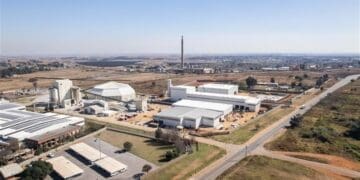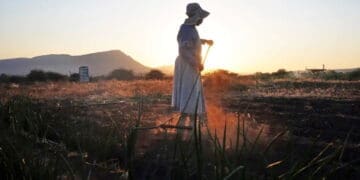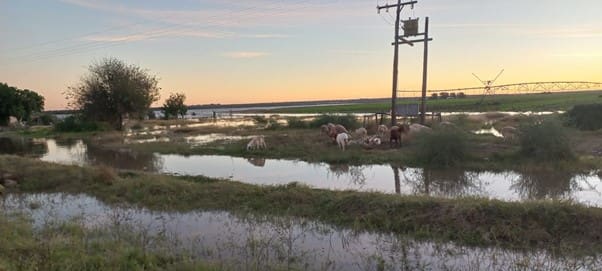Farmers in the Northern Cape are counting the costs of devastating floods that swept through key agricultural districts, destroying livestock, crops and infrastructure.
The National African Farmers Union (NAFU) has called on the government to urgently intervene, warning that without immediate support, the province’s agricultural sector could face collapse.
In Siyancuma’s Douglas area, 63-year-old smallholder farmer Willy Katz stood silently as he surveyed what was left of his land. Floodwaters claimed his 30 goats, 37 sheep, 14 pigs and 60 chickens in just a few hours.
“The river took everything. They say farming is a gamble, but no one can
prepare for this,” said Katz.
The floods, triggered by weeks of unusually high rainfall, impacted communities from Douglas to Upington, leaving behind a trail of destruction.
In districts like Phokwane and Dikgatlong in the Frances Baard region, six farmers reported severe damage to 230 hectares of lucerne and 40 hectares of maize.
In the ZF Mgcawu District, two farmers in Kheis harvested 60 hectares of maize under immense pressure, while another 30 hectares remain submerged. And in Kai !Garib, over 300 hectares of vineyards and 120 hectares of lucerne have been lost.
While the Northern Cape is often seen as dry and drought-prone, the recent deluge has exposed the province’s vulnerability to extreme and erratic weather events.
Experts say this is part of a broader climate shift that is reshaping the agricultural landscape.
“The cumulative stress on these farmers is beyond financial but it is psychological,” said Dr Lethabo Nkomo, an agricultural economist at the University of the Free
State.
“Many are still in debt from trying to survive the last dry season. Now they face yet another existential threat,” Nkomo said.
Smallholder farmers like Katz operate without insurance or contingency funds. Many are still recovering from years of drought and irrigation failures related to load-shedding.
In Siyancuma, residents reported that critical infrastructure such as irrigation pumps, gravel roads and water channels has been destroyed.
Makeshift shelters now house displaced livestock, and runoff due to the floods has contaminated water sources, raising health concerns for both animals and humans.
Despite the scale of the disaster, affected farmers say the government’s response has been sluggish. No formal disaster declaration has been made for the province, and relief efforts have yet to reach many of the hardest-hit communities.
“The Northern Cape contributes significantly to the national food basket, especially lucerne and table grapes,” said Joseph Phatudi, a regional agricultural advisor. “This flood is not just a rural issue, but it affects national food prices, exports and employment.”
NAFU Northern Cape called on the government to declare the province a flood disaster zone and immediately release relief funding.
It also urged authorities to restore damaged infrastructure, provide veterinary and feed support for surviving livestock and develop a long-term climate adaptation strategy tailored to semi-arid regions like the Northern Cape.
“The situation is urgent,” NAFU’s secretary-general Modisaotsile Tshite warned.
“If support is delayed, the agricultural backbone of the Northern Cape faces imminent collapse.”
For Katz and countless others, the future remains uncertain.
“We do not want handouts,” he said. “We just need a fighting chance.”































































